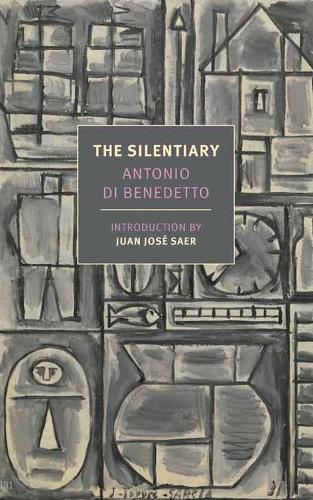
The Silentiary
(Paperback)
Publishing Details
The Silentiary
By (Author) Antonio di Benedetto
By (author) Esther Allen
New York Review Books
NYRB Classics
15th February 2022
1st February 2022
United States
Classifications
General
Fiction
863.64
Physical Properties
Paperback
176
Width 127mm, Height 203mm
Description
In post-WWII South America, a struggling writer embarks on a murderous thought experiment to help kickstart his career in this next tale of longing fromthe author of Zama. The Silentiary takes place in a nameless Latin American city during the early 1950s. A young man employed in middle management entertains an ambition to write a book of some sort. But first he must establish the necessary precondition, which the crowded and noisily industrialized city always denies him, however often he and his mother and wife move in search of it. He thinks of embarking on his writing career with something simple, a detective novel, and ponders the possibility of choos- ing a victim among the people he knows and planning a crime as if he himself were the killer. That way, he hopes, his book might finally begin to take shape. The Silentiary, along with Zama and The Suicides, is one of the three thematically linked novels by Di Benedetto that have come to be known as the Trilogy of Expectation, after the dedication "To the victims of expectation" in Zama. Together they constitute, in Juan Jose Saer's words, "one of the culminating moments of twentieth-century narrative fiction in Spanish."
Reviews
"The Silentiary is an urban novel, but the city manifests almost exclusively through sound, which tortures the narrator with its crushing omnipresence. . . .Agency and its destruction is The Silentiarys, indeed the entire Trilogy of Expectations, central drama: What can an individual do against the abstract and inescapable exhaustion of the present . . .Di Benedetto was a poet of individuals in conflict with the historical conditions into which they were born, infected with a will to live that they could only resent." Federico Perelmuter, The Baffler
"Blending the futility of Kafkas surveyors with the inner turmoil of Dostoyevskys underground men, Di Benedettos martyrs of deferment await a deliverance that never comes. Their livesinert, almost parentheticaloffer up the psychological extremity of stasis. Madness, obsession, and terminal lassitude hang in equipoise from his subtle systems of narrative suspension. . . . Di Benedettos lean, existential fictions have always dramatized the impossibility of living. . . . Di Benedettos strange, austere book of foiled escapes and delicate cruelties glows with a lunar abstraction." Dustin Illingworth, The Nation
"Di Benedetto recasts the major conflict of the modern world as a war between noise and silence with this sly treatise on an individuals attempts to remain sane in a city where his consciousness is frequently set off-kilter, 'in defiance of any lunatic who might pretend otherwise.' The result is existential, nervy, and crisply imagined." Publishers Weekly
"The Silentiary is the second book in what is known as di Benedettos Trilogy of Expectation, following Zama, a mordant chronicle of inaction set in a tedious 18th-century backwater of colonial South America. The books have a spiritual kinship with Samuel Becketts postwar trilogy of monologue novels in their deadpan rendering of comic futility and monomania."Sam Sacks, The Wall Street Journal
[Antonio di Benedettos] heros existential predicament might recall Kafka or Dostoevsky, albeit on a lighter scale. [The Silentiary] develops in spare, careful prose and sustains a thread of dry humor. . . A strange, amusing novel. Kirkus Reviews, starred review
Di Benedetto writes in sharp, modern, deceptively simple prose . . . he was a bridge between Jorge Luis Borges, with his mental labyrinths, and Roberto Bolao, a peripatetic Chilean whose work explored both the condition of the writer and chronic violence in Latin America. Michael Reid, The Economist
[The Silentiary] calls to mind Kafkas pregnantly indecipherable novels, but Di Benedetto fills out his quasi-allegorical premise with so many dingy particulars that his narrator seems to experience his universal problem, in what may be the universal way, as a private shame and defeat. Benjamin Kunkel, The New Yorker
Author Bio
Antonio Di Benedetto (1922-1986) was an Argentine journalist and the author of five novels, the most well known being Zama, which is available from NYRB Classics. His first book, the story collection Mundo Animal, appeared in English translation in 1997 as Animal World. Juan Jose Saer (1937-2005) was considered one of the most important Latin American authors to come after Jorge Luis Borges. He wrote several novels, a few of which are available in English, including The Regal Lemon Tree and The Witness. Esther Allen received the 2017 National Translation Award for her translation of Antonio Di Benedetto's Zama. Co-founder of the PEN World Voices Festival in New York City, she teaches at City University of New York's Graduate Center and Baruch College, where she directs the Sidney Harman Writer-in-Residence Program.In 2006 the French government named her a Chevalier of the Order of Arts and Letters.
